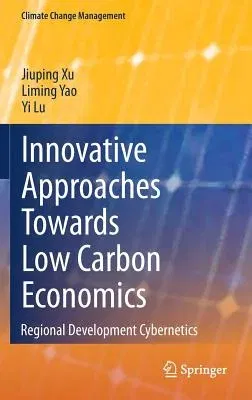Jiuping Xu
(Author)Innovative Approaches Towards Low Carbon Economics: Regional Development Cybernetics (2014)Hardcover - 2014, 18 March 2014

Qty
1
Turbo
Ships in 2 - 3 days
In Stock
Free Delivery
Cash on Delivery
15 Days
Free Returns
Secure Checkout

Part of Series
Climate Change Management
Print Length
436 pages
Language
English
Publisher
Springer
Date Published
18 Mar 2014
ISBN-10
3642454283
ISBN-13
9783642454288
Description
Product Details
Authors:
Book Edition:
2014
Book Format:
Hardcover
Country of Origin:
NL
Date Published:
18 March 2014
Dimensions:
23.37 x
15.24 x
2.79 cm
ISBN-10:
3642454283
ISBN-13:
9783642454288
Language:
English
Location:
Berlin, Heidelberg
Pages:
436
Publisher:
Series:
Weight:
816.47 gm